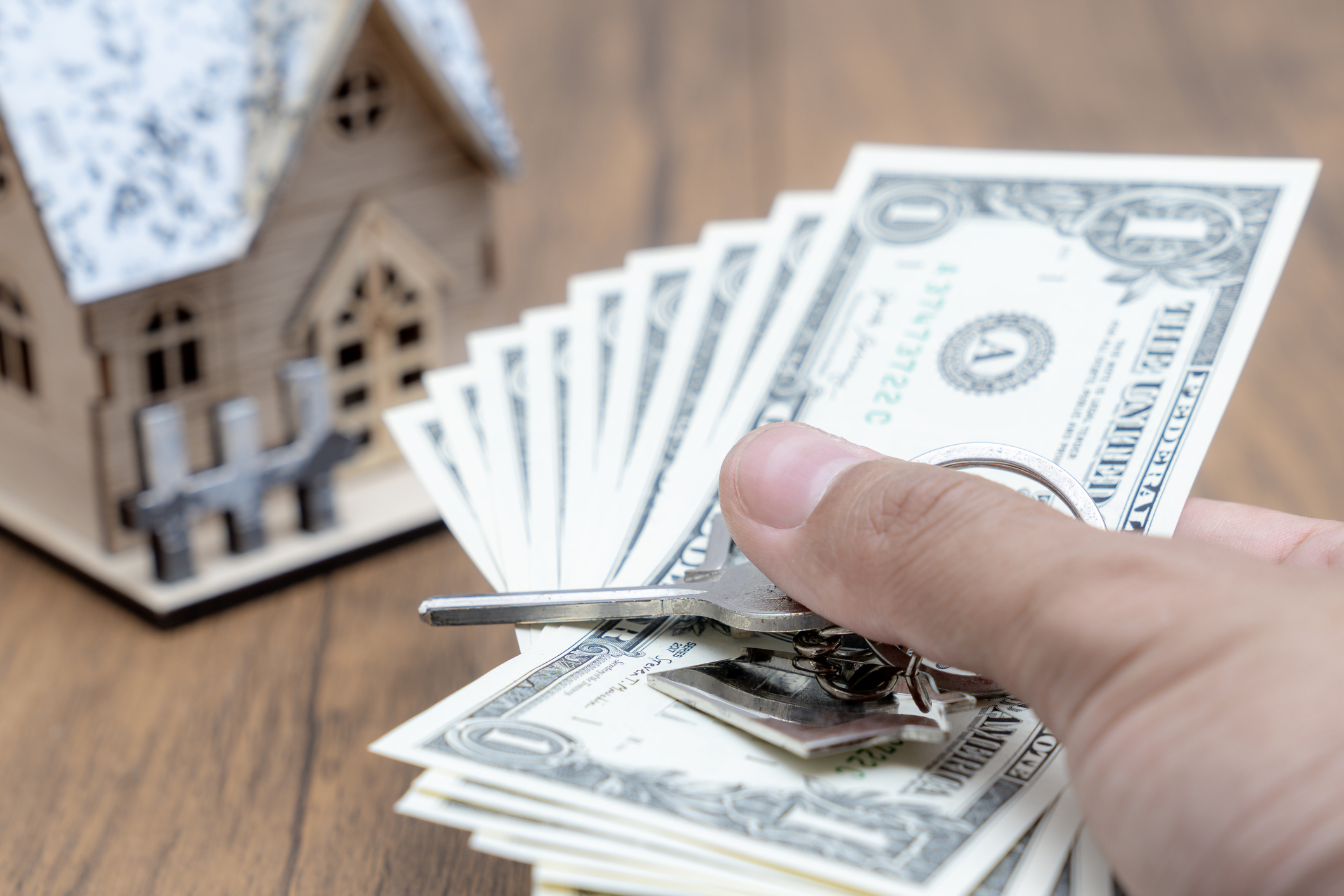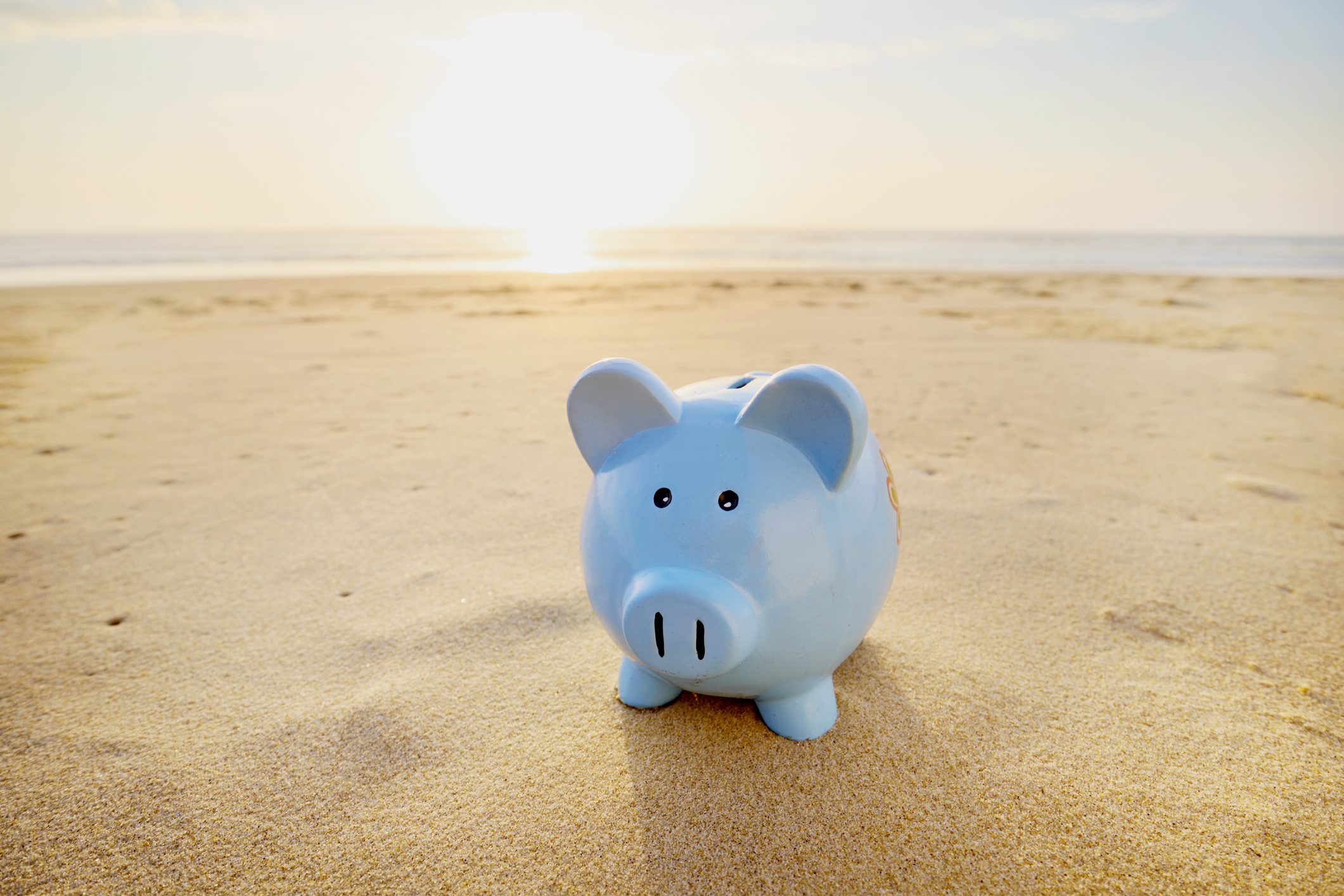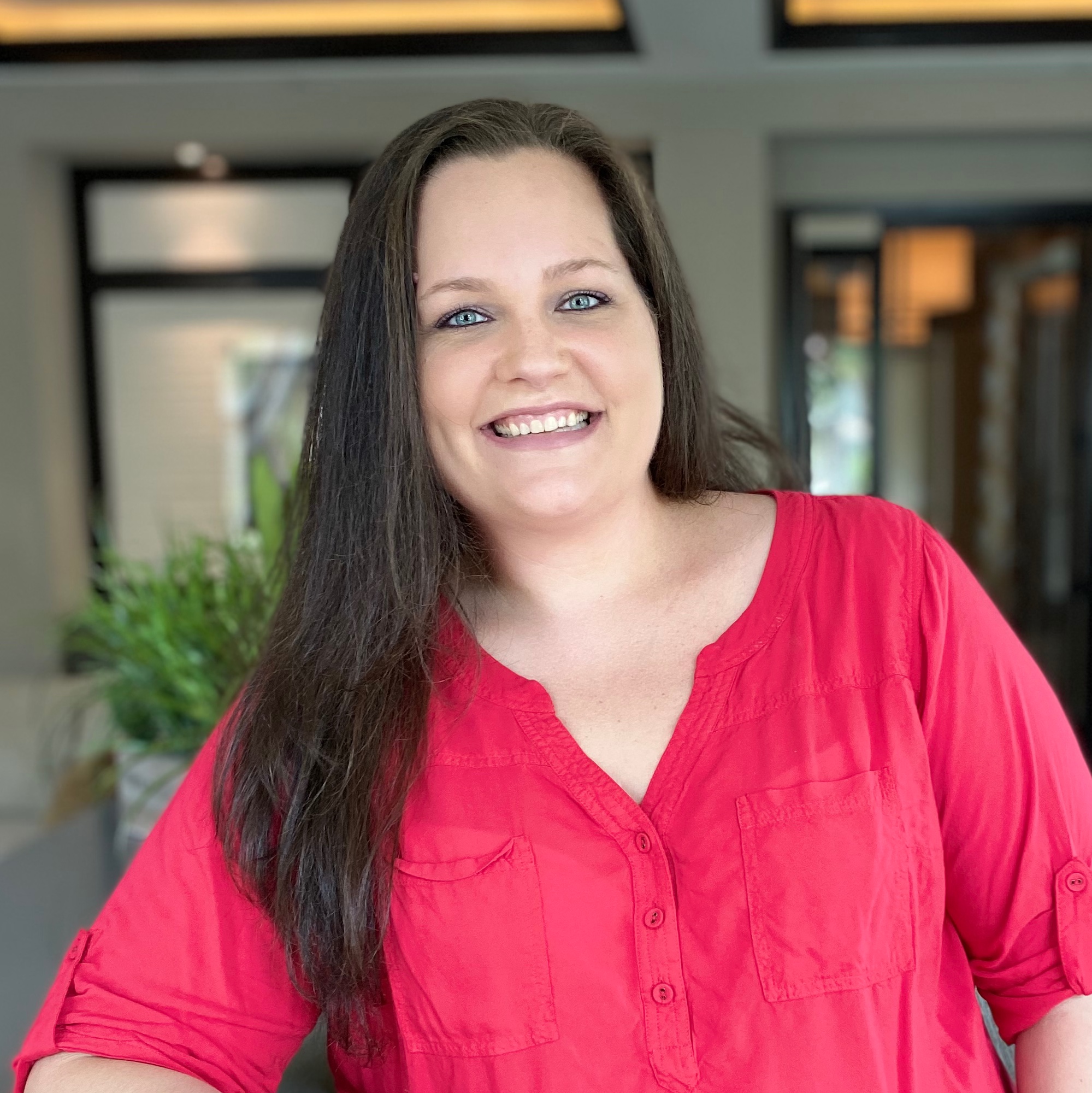Profit and prosper with the best of Kiplinger's advice on investing, taxes, retirement, personal finance and much more. Delivered daily. Enter your email in the box and click Sign Me Up.
You are now subscribed
Your newsletter sign-up was successful
Want to add more newsletters?

Delivered daily
Kiplinger Today
Profit and prosper with the best of Kiplinger's advice on investing, taxes, retirement, personal finance and much more delivered daily. Smart money moves start here.

Sent five days a week
Kiplinger A Step Ahead
Get practical help to make better financial decisions in your everyday life, from spending to savings on top deals.

Delivered daily
Kiplinger Closing Bell
Get today's biggest financial and investing headlines delivered to your inbox every day the U.S. stock market is open.

Sent twice a week
Kiplinger Adviser Intel
Financial pros across the country share best practices and fresh tactics to preserve and grow your wealth.

Delivered weekly
Kiplinger Tax Tips
Trim your federal and state tax bills with practical tax-planning and tax-cutting strategies.

Sent twice a week
Kiplinger Retirement Tips
Your twice-a-week guide to planning and enjoying a financially secure and richly rewarding retirement

Sent bimonthly.
Kiplinger Adviser Angle
Insights for advisers, wealth managers and other financial professionals.

Sent twice a week
Kiplinger Investing Weekly
Your twice-a-week roundup of promising stocks, funds, companies and industries you should consider, ones you should avoid, and why.

Sent weekly for six weeks
Kiplinger Invest for Retirement
Your step-by-step six-part series on how to invest for retirement, from devising a successful strategy to exactly which investments to choose.
Buying a second home can be an appealing way to lock in a vacation retreat or create an income-producing property. But the number of buyers taking out mortgages for second homes has fallen sharply — Redfin reports 86,604 mortgages in 2024, the lowest level since 2018 and far below the 258,289 peak in 2021.
If you have enough savings, you don’t necessarily need a mortgage to make the purchase. All-cash offers are still common, and they can make transactions faster and more attractive to sellers. But draining your savings may leave you without a financial cushion.
The real question is whether it makes more sense to pay cash for your second home or finance it with a mortgage. Both options come with trade-offs in flexibility, tax advantages and long-term costs.
From just $107.88 $24.99 for Kiplinger Personal Finance
Become a smarter, better informed investor. Subscribe from just $107.88 $24.99, plus get up to 4 Special Issues

Sign up for Kiplinger’s Free Newsletters
Profit and prosper with the best of expert advice on investing, taxes, retirement, personal finance and more - straight to your e-mail.
Profit and prosper with the best of expert advice - straight to your e-mail.
Should you pay cash for your second home?

Buying a home is often the largest purchase you’ll make in your lifetime, and some buyers are in a position to cover the cost entirely in cash. According to the National Association of Realtors (NAR), 28% of all home sales last summer were all-cash transactions.
About 16% of those were for second homes, showing that many buyers are skipping financing altogether when purchasing a vacation or investment property.
By November, the share of all-cash purchases dipped slightly to 25%. Even with that decline, cash buyers continue to represent a significant portion of the market. These figures highlight how common it is, and how competitive it can be, for buyers with available funds to sidestep the mortgage process and secure a property outright.
Curious about today's rates? Explore and compare some of today's top mortgage offers with the tool below, powered by Bankrate:
Pros and cons of buying a second home in cash
Paying in cash comes with clear advantages, but it isn’t without drawbacks. Here’s what to weigh before deciding if an all-cash purchase is right for you.
Pros
- No decades-long interest charges. You’re off the hook from paying interest on your home, which could cost you more than the home itself. If you were to buy a $400,000 second home today with a 6.5% interest rate and put down 10% — $40,000 — you’re looking at about $2,742 as your monthly payment. At the end of your 30-year loan, you’ll end up paying $819,160 for that home — $459,160 of that in interest.
- Fewer fees. Paying in cash eliminates many of the costs tied to financing, such as loan origination, appraisal and lender-related closing fees. While you’ll still need to cover standard expenses like title fees, transfer taxes and insurance, the overall transaction typically costs less than if you were taking out a mortgage.
- Outright ownership. A mortgage means your lender technically owns your home until you’ve paid off your loan. Without a mortgage, you own the home in full, giving you more options if you want to sell it quickly.
- Faster purchase. Sellers like all-cash offers, since they don’t have to be at the mercy of financial institutions approving or denying potential buyers. It makes for quicker, smoother transactions and could put you at the front of the line for a hot property.
- Potential discounts. Some sellers may offer an all-cash discount if you pay for the property in full, rather than going through mortgage lenders, which could trigger more costs and fees.
- Spending freedom. Without a monthly mortgage payment, you can use that money you would’ve spent on a home loan towards other wants or needs, like investments and savings.
Cons
- Less cash flexibility. If you’re draining your savings to buy a second home, you have very little to pay for other needs. Without a cushion, you could end up borrowing for emergencies, whether unexpected repairs, car maintenance, or a health concern.
- Fewer tax benefits. While second homes don’t offer as many tax breaks as primary residences, you can still qualify for some relief. For instance, you can deduct mortgage interest, up to certain limits.
Pros and Cons of buying a second home with a mortgage

While many second homebuyers pay for their property in cash, not all do. In some cases, taking out a mortgage might be a better option.
Pros
- More financial wiggle room. Even if you can pay a sizable chunk of your home purchase in cash, taking out a small loan provides financial relief in the first few months of ownership. What if you need to cover major repairs or you want to make significant upgrades? Think about what you’ll need money for after the purchase.
- Tax incentives. Even though you’re making monthly mortgage payments on a second home, you can take advantage of the mortgage interest deduction on your taxes.
- Builds creditworthiness. While taking out a mortgage causes a temporary dip in your credit, having a home loan on your credit report looks good to potential creditors in the future, who may look at your report to gauge your creditworthiness.
Cons
- Long-term interest and fees. Taking out a mortgage means paying interest until your loan is paid in full. There’s a chance you could pay off your loan before the terms are up, lessening how much you pay in total interest. But you might get hit with a prepayment penalty if you pay it off too soon.
- Ongoing monthly payments. Unless your first home is paid in full, you’ll add another mortgage payment to your monthly budget. If you can afford the new payment, this should be fine, but you may need to rework the numbers if it's tightening your finances.
- Longer closing process. The homebuying process can take a few weeks to a couple of months. Taking out a mortgage puts you at the mercy of a financial institution that approves or denies your final application.
Deciding how to fund your second home
If you have the cash to buy your second home in full, that’s a great way to avoid the mountain of interest and fees that come with a mortgage. You’ll also have the peace of mind of owning the property outright.
Not everyone has the financial freedom to make this leap, though. And even if you do, a loan can still make sense if it helps you preserve savings, take advantage of tax deductions, or keep more flexibility in your overall finances.
Related Content
Profit and prosper with the best of Kiplinger's advice on investing, taxes, retirement, personal finance and much more. Delivered daily. Enter your email in the box and click Sign Me Up.
Dori is an award-winning journalist with nearly two decades in digital media. Her work has been featured in the New York Times, Wall Street Journal, USA Today, Newsweek, TIME, Yahoo, CNET, and many more.
Dori is the President of Blossomers Media, Inc.
She’s extensively covered college affordability and other personal finance issues, including financial literacy, debt, jobs and careers, investing, fintech, retirement, financial therapy, and similar topics. With a strong journalistic background, she’s also worked in content marketing, SEO, affiliate marketing, content strategy, and other areas.
Dori graduated with a Bachelor’s degree in Multimedia Journalism from Florida Atlantic University. She previously served as the president of the Florida Chapter of the Society of Professional Journalists, where her chapter won the coveted “Chapter of the Year” award for two consecutive years.
-
 Quiz: Do You Know How to Avoid the "Medigap Trap?"
Quiz: Do You Know How to Avoid the "Medigap Trap?"Quiz Test your basic knowledge of the "Medigap Trap" in our quick quiz.
-
 5 Top Tax-Efficient Mutual Funds for Smarter Investing
5 Top Tax-Efficient Mutual Funds for Smarter InvestingMutual funds are many things, but "tax-friendly" usually isn't one of them. These are the exceptions.
-
 AI Sparks Existential Crisis for Software Stocks
AI Sparks Existential Crisis for Software StocksThe Kiplinger Letter Fears that SaaS subscription software could be rendered obsolete by artificial intelligence make investors jittery.
-
 We Retired at 62 With $6.1 Million. My Wife Wants to Make Large Donations, but I Want to Travel and Buy a Lake House.
We Retired at 62 With $6.1 Million. My Wife Wants to Make Large Donations, but I Want to Travel and Buy a Lake House.We are 62 and finally retired after decades of hard work. I see the lakehouse as an investment in our happiness.
-
 I'm an Opportunity Zone Pro: This Is How to Deliver Roth-Like Tax-Free Growth (Without Contribution Limits)
I'm an Opportunity Zone Pro: This Is How to Deliver Roth-Like Tax-Free Growth (Without Contribution Limits)Investors who combine Roth IRAs, the gold standard of tax-free savings, with qualified opportunity funds could enjoy decades of tax-free growth.
-
 I'm a Real Estate Investing Pro: This Is How to Use 1031 Exchanges to Scale Up Your Real Estate Empire
I'm a Real Estate Investing Pro: This Is How to Use 1031 Exchanges to Scale Up Your Real Estate EmpireSmall rental properties can be excellent investments, but you can use 1031 exchanges to transition to commercial real estate for bigger wealth-building.
-
 My Spouse and I Are Saving Money for a Down Payment on a House. Which Savings Account is the Best Way to Reach Our Goal?
My Spouse and I Are Saving Money for a Down Payment on a House. Which Savings Account is the Best Way to Reach Our Goal?Learn how timing matters when it comes to choosing the right account.
-
 The High Cost of Sunshine: How Insurance and Housing Are Reshaping Snowbird Living
The High Cost of Sunshine: How Insurance and Housing Are Reshaping Snowbird LivingThe snowbird lifestyle is changing as insurance and housing costs climb. Here’s how retirees are adapting and where they’re choosing to go.
-
 How to Turn Your 401(k) Into A Real Estate Empire — Without Killing Your Retirement
How to Turn Your 401(k) Into A Real Estate Empire — Without Killing Your RetirementTapping your 401(k) to purchase investment properties is risky, but it could deliver valuable rental income in your golden years.
-
 We're 62 With $1.4 Million. I Want to Sell Our Beach House to Retire Now, But My Wife Wants to Keep It and Work Until 70.
We're 62 With $1.4 Million. I Want to Sell Our Beach House to Retire Now, But My Wife Wants to Keep It and Work Until 70.I want to sell the $610K vacation home and retire now, but my wife envisions a beach retirement in 8 years. We asked financial advisers to weigh in.
-
 We Inherited $250K: I Want a Second Home, but My Wife Wants to Save for Our Kids' College.
We Inherited $250K: I Want a Second Home, but My Wife Wants to Save for Our Kids' College.He wants a vacation home, but she wants a 529 plan for the kids. Who's right? The experts weigh in.

